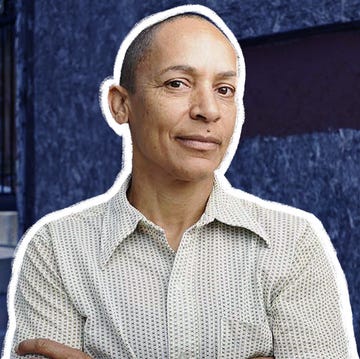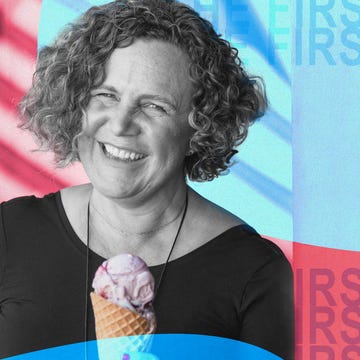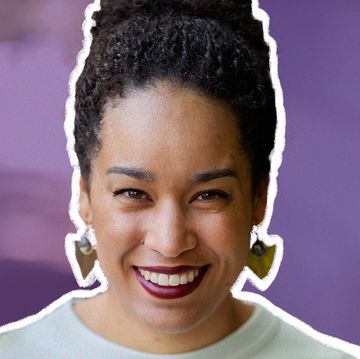Research suggests that many people in the workplace don’t create a career plan for themselves because they fear they’ll fall short. If they don’t have a plan, they don’t need to fear failure, right? Not quite.
A study of female executives in 2014 found that career planning can significantly enhance women’s advancement into executive roles. Gender bias is a powerful influence on women’s beliefs about their own ability to lead, which helps to explain why many women don’t make plans or acknowledge professional goals.
The same research found that career planning had multiple benefits, from greater prospect of advancement through the executive ranks to overcoming obstacles — both real and perceived. Kimberly Dowdell, the president-elect of the American Institute of Architects who will be the first Black female architect to lead the organization in 2024, credits much of her professional success with making and sticking to a plan.
Dowdell says the vision for her career has been strategic, not rigid. “Over the course of my career, my plans evolved, but they were rooted in my original mission to improve the quality of people’s lives by design,” says Dowdell, who decided to be an architect at age 11. “There’s power in putting pen to paper and putting your thoughts in black and white, so you can fertilize it, keep revisiting it, and eventually the right path reveals itself.”
Growing up in Detroit in the early 1990s, Dowdell witnessed dilapidated buildings, boarded up and covered in graffiti. She understood that cities, design, and community must coexist. She could play a role in making her city safer, more inclusive, and beautiful. It was a dream that she had to pursue despite those who discouraged or underestimated her.
“I’d come from humble beginnings, and boarding school in the 1990s was pretty expensive, but I was fortunate to work with financial aid and get scholarships to make it happen,” Dowdell says. “From the beginning of my career, and my life, I believe that if you have a goal, you have to pursue it with the fierce energy that you would need to accomplish it.”
Dowdell earned her bachelor’s degree in architecture at Cornell University and her master’s in public administration at the Harvard Kennedy School of Government. Her plan crystalized during lengthy subway rides. “I’d use it to study for my architecture exams,” she recalls. “Then when I finished exams, I used the train time to write down my goals in a little notebook: grad school, either law school, business, or a public policy degree. When I look at my notebooks, I’d done some research on Harvard Kennedy School of Government, where I ultimately ended up going years later.”
What should specifically define a career plan? According to the researchers from Stayer University and the University of Phoenix, a plan first articulates individual values, goals, interests, and ambitions. With these as the guiding principles, plans then form a map to evaluate opportunities, set micro-goals, network, mentor, and identify developmental and educational opportunities. Here are four approaches to start conceptualizing a career plan.
Embrace strengths
It sounds simple, but owning your power is the first step toward a successful career. “You have unique talents that set you apart from everyone else,” says career coach Lee Koles, founder of CareerSequel and CareerSequel: The Return to Work Podcast. “Take a pause, and reflect on them. What things come easily to you? Understanding your strengths is key to unlocking confidence as you forge ahead on your career path.”
Identify values
“What are your deepest held beliefs and priorities?” Koles says. “Each industry, organization, and job has its own set of core values. You’ll feel happiest and most fulfilled when these values are aligned with yours.”
For Dowdell, working to eliminate gender bias, and the impostor syndrome that threatens to derail the career prosperity of the younger women she mentors, has been paramount to her progress.
“Women have more of a tendency than men I’ve interacted with to have that impostor syndrome or to struggle to set goals that they think are achievable,” Dowdell says. “I encourage younger women that I mentor to have clarity of purpose and to set themselves up with a plan of action to do what they’re passionate about.”
Recognize accomplishments
As you advance in your career, it’s vital to pause and reflect because one moment of success can lead to another, whether it’s as simple as helping to elevate a junior staff member on your team or as monumental as making a sale worth billions. Every accomplishment is an important part of your professional narrative.
“What problems have you solved throughout your career — and how?” Koles says to ask yourself. “These will be the stories you tell throughout your job search process. Remember that volunteering efforts, community service, and assisting friends and family count as much as paid work.”
Form a team
“Your career planning process doesn’t have to be lonely or stressful,” Koles says. “Lean on your friends and family for insight. Others can often see our talents and values more clearly than we can. You may also want to hire a career strategist to help you propel your plan forward.”
Dowdell stresses the importance of finding and learning from people you admire. “Get five mentors because it’s important to have backup, and make sure that you check in with your mentors,” she says. “Ask them questions, and let them know how you’re doing. Try to ask if there are ways that you can help them as well.”
Cat Woods is a Melbourne, Australia-based freelance writer and yoga and Pilates instructor who has contributed to The Sydney Morning Herald, Marie Claire, and The New York Times. Follow her on Twitter @catty_tweeter.
Get Shondaland directly in your inbox: SUBSCRIBE TODAY














